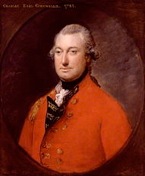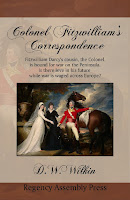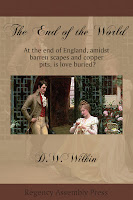The Road of Politics has a lot of Potholes and certainly no true friends
 |
| Warren Hastings |
 |
| Eliza de Feuillide |
 |
| Henry Thomas Austen |
As mentioned a couple posts ago Warren Hastings, who was the first Governor of India, is a fascinating Regency Era study since many believe him to be the natural father of Eliza de Feuillide, who married Henry Thomas Austen, the brother of Jane Austen.
That connection, provides many of those who love novels of the Regency, and Jane Austen, a connection. Real history, interacting with our literary giantess.
 |
| Jane Austen |
As with the OJ Simpson trial, a few years ago, this trial between 1788 and 1795 was the big court case of the times.
What we see is that the door to a greater discussion of what was happening in India and what the East India Company was doing came about.
 |
| Prime Minister Lord North |
Hastings became Governor General of India in 1773, after 23 years with “The Company,” The East India Company. Appointed by Prime Minister North whose government was also the party in charge when the British lost the American colonies.
 |
| Sir Phillip Francis, the sore Loser |
A great deal of the foundation of the impeachment trial was based on the governing Calcutta Council that Hastings led as Governor General. He had one man who was in opposition to nearly all that he did. Sir Phillip Francis and he disagreed so much that they even fought a duel, which Francis was wounded in. Francis then returned to England and began to raise questions about Hastings conduct. He found support in the Whigs who were in opposition to Lord North’s government.
After this, the Second Mysore War came, when Mysore thought to take on the British while they were heavily involved in the American colonies. The war ended with the status quo from when it started. However, back in England much was made of the company’s mismanagement, and thus Hasting’s position.
 |
| William Pitt the Younger |
 |
| Charles James Fox |
The many wealthy nabobs who returned to England were quite unpopular, and Francis’ attacks did not make Hastings any better received.
Then after the Fox government fell, Charles James Fox attacked Hastings as well. Pitt made no mention of Hastings in introducing a new India Act in 1784 and this was seen as the government not supporting the Governor General.
 |
| George III |
 |
| Edmund Burke |
Hastings returned to England in June of 1785. On the return journey, he wrote 'The State of Bengal,' the defense of his conduct. He expected to be attacked by Parliament and the press when he returned, but it to be short lived. King George III gave him an audience and he received a unanimous vote of thanks by the East India Company when he returned. He even thought he might get an Irish peerage. Edmund Burke who is regarded as the father of Anglo-Conservatism, supporter of American Independence and opposed to allowing the French such rights, though, had other plans for Hastings.
In reviewing the material of what the politicians were up to, it seems that Hastings was a nice little scapegoat for the opposition party to embarrass Prime Minister Pitt’s government. Francis (and one can only surmise that he hated that he lost to Hastings in India, and then was wounded by him as well in their duel) made eleven specific charges against Hastings.
 |
| Hastings in later years |
Hastings trial began on February 13th 1788. It took place in Westminster Hall Members of the House of Commons were seated to Hastings right, the Lords to his left and a large audience of spectators, including royals in boxes and public galleries.
Edmund Burke began the proceedings with a long public address. He took four days and treated it all seriously. However most thought the trial resembled a social event.
The Coronation Banquet of King George IV in Westminster Hall, 1821 (A very Regency Era representation of the site that was used to try Warren Hastings)
 |
| Richard Brinsley Sheridan |
Interior of Theatre Royal, Drury Lane. Circa 1808. Plate 32 of Microcosm of London (1808) The play is Coriolanuis.
In total nineteen spoke against Hastings as part of the Impeachment Committee. With Sheridan and so many gathered to witness, it does sound like a theatrical production. While at first, the Whigs had gotten public sympathy on their side over the issue, Sir Phillip Francis having worked so hard to vilify Hastings. But the trial dragged on for months, then years.
When the French Revolution began in 1789, Sheridan, obviously attuned to his audience as a member of the theater community said that he was "heartily tired of the Hastings trial" despite being one of its instigators. Doubt now had permeated into society about Hasting’s guilt. James Gilray the cartoonist depicted Hastings as the “Saviour of India” and he was being assaulted by Burke and Fox.
 |
| “Saviour of India” |
 |
| Lord Cornwallis |
William Larkins the former Accountant General of Bengal then testified that there were no irregularities with Hasting’s administration. The Whigs had hoped that they would have had a lot of testimony showing corruption but many came forward as character witnesses for Hastings.
 |
| For the trial of Warren Ha(stings)' (includes Edmund Burke; Charles James Fox; Sir Philip Francis; Warren Hastings), by James Sayers (died 1823) |
 |
| Lord Chancellor Lord Loughborough |
Edmund Burke died 2 years later and believed in Hasting’s guilt to his dying day. He believed that the Lords acquitting Hastings would lead “to the perpetual infamy of the House of Lords.”
If Hastings had been super wealthy, the impeachment broke him and left him with debts of £70,000. The government and the East India Company did come to his aid in the end and helped to pay for it. The Lawyer made out like a true Nabob of India, though. Richard Shaw(e) had his mansion Casino House in Herne Hill built from his fees. He had John Nash and Humphrey Repton as the architect and Landscaper.
In 1812 Hastings was asked by Parliament to speak as an expert on India. After which, all the members rose in acknowledgement. Something that they only did for members of the Royal family.
As more came out, the role of Pitt abandoning the support of Hastings, and allowing the impeachment to go forth was seen as a Political power play. Pitt feared that he was to be tarred by the same brush wielded by those trying to ruin Hastings. And in the end, the total exoneration of Hastings proves he had never been guilty but helped to begin the transition of rule in India by the East India Company, to the British Government.
* * *
 Mr. Wilkin writes Regency Historicals and Romances, Ruritanian (A great sub-genre that is fun to explore) and Edwardian Romances, Science Fiction and Fantasy works. He is the author of the very successful Pride & Prejudice continuation; Colonel Fitzwilliam’s Correspondence. He has several other novels set in Regency England including The End of the World and The Shattered Mirror. His most recent work is the humorous spoof; Jane Austen and Ghosts.
Mr. Wilkin writes Regency Historicals and Romances, Ruritanian (A great sub-genre that is fun to explore) and Edwardian Romances, Science Fiction and Fantasy works. He is the author of the very successful Pride & Prejudice continuation; Colonel Fitzwilliam’s Correspondence. He has several other novels set in Regency England including The End of the World and The Shattered Mirror. His most recent work is the humorous spoof; Jane Austen and Ghosts. The links for all locations selling Mr. Wilkin's work can be found at the webpage and will point you to your favorite internet bookstore: David’s Books, and at various Internet and realworld bookstores including the iBookstore, Amazon, Barnes and Noble, Smashwords.
The links for all locations selling Mr. Wilkin's work can be found at the webpage and will point you to your favorite internet bookstore: David’s Books, and at various Internet and realworld bookstores including the iBookstore, Amazon, Barnes and Noble, Smashwords.
You also may follow Mr. Wilkin on Twitter at @DWWilkin
Mr. Wilkin maintains a Pinterest page with pictures and links to all the Regency Research he uncovers at Pinterest Regency-Era






It's a hallmark of the big issues in this era that they are always drawn along party lines and quite often without any logic or merit.
ReplyDeleteBrinsley Sheridan was a notorious womaniser, and purveyor of the most spiteful gossip. Yes, a fine playwright--absolutely. But he was an obsessive gambler too, wildly feckless, and a woeful manager of Drury Lane and many accused him of setting fire to his own theatre in 1812 in order to claim the insurance.
Equally, many credit his high ranking in the Whig party as the reason the Whigs were unelectable during this period. He was just as spiteful about his own party members as he was about the Tories--so people tended not to trust them at all.
A very interesting post. Thank you.
Thanks MM
ReplyDeleteI will have to do more research on Sheridan, especially the next time I include scenes in Drury Lane in my stories.